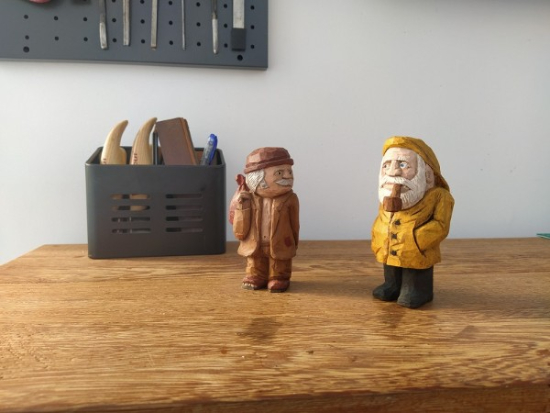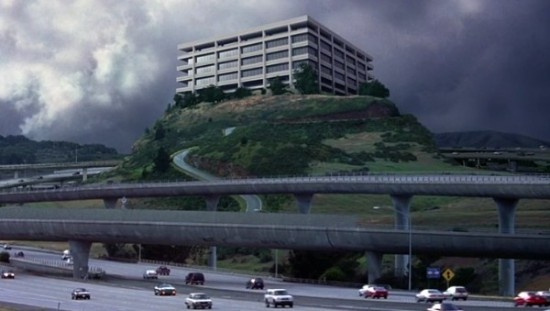Letter to the Editor: I Always Suspected This May Not Be a Good Way to Live

Hi Robert,
I’m a long-time fan of your blog. Your content is a breath of fresh air on an Internet plagued with work worship, life coaches, productivity tips and the “power lunch” mentality. I started reading your book yesterday and it’s difficult to stop. Your writing style is a brain massage.
Let me tell you a little about myself: I’m Brazilian, male, 33 years old, and have what every parent here raises a child to get: a public-sector job. The admission exam for this type of job is very, very hard, demanding years of single-minded preparation. Once you pass it, your job entails massive boredom, senseless tasks and good pay, normally for life.
I always suspected this may not be a good way to live, even before setting foot in an office. After twelve years of living this life my soul was in an advanced state of corrosion. The paycheck never brought the lasting happiness that everybody said it would. The material goods it made possible did not motivate me any longer.
The turning point was when I needed a haircut one day. To get a haircut I needed to program my schedule one week in advance to carve out twenty minutes for it. Enough! I was a slave on gold chains. This must not go on.
On this journey through open plan offices and noisy coffee machines, I always made sure to save my money, knowing full well that I would not be able to bear the 37 years of mandatory work for retirement. Last November I made a deal with management to take one day off per week (Wednesday) with the matching 20% reduction in pay. I had made very few decisions in my life as intelligent as this one.
With this improvement in my life came a change in perception about the value of work. I started living in a more leisurely way. I barely noticed the 20% pay cut but it was difficult not to notice a holiday every week.
A year later here I am: new hobbies, new interests, and far more content than ever before. Hell! I’m making wood sculptures when twelve months ago I didn’t even know how to draw! In the workplace I’m a tech guy (the one with a spreadsheet for everything) and art apparently shouldn’t be attempted by people like me! Yet here I am, having a blast at cutting wood, not typing numbers on a computer. Imagine how many people have too hidden talents that will never see daylight because a job sucks away all the energy.
In the centuries to come we’re going to look to today’s offices and feel the same as when we look for Industrial Revolution factories. How could we do that to people?
I’m grateful for you being a voice against the madness of work and so-called productivity. I realized I’m not alone and very happy to realize this relatively early on life.
I attached some images of the sculptures. It takes hours and hours to make one, but who’s counting?
Best regards,
F
No, No, and No Again
My friend Tim likes to read books about Economics. In one of them, he found this and sent it on to me:

“It sounds like something from Escape Everything!” he says. He’s right too.
I Googled this enlightening passage and it seems to come from William Bernstein‘s forward of Johnathan Clements‘ book, How To Think About Money. I don’t quite know who either of those people are (though some of the FIRE fighters among you surely will) but it’s nice to have one’s dreamily-arrived-at sentiments echoed by some deep-browed types.
Are You Glued to the News?
Oliver Burkeman’s amusing (but ultimately useful) Guardian column about self-help was always a good thing. He recently stopped doing it but, almost in its place, rises a newsletter called The Imperfectionist, which is (so far) even better than the column.
On November 3rd, the day America went to the polls, he observes that people have, in recent years, developed a tendency to “live inside the news”:
[Since 2016 it] was as if more and more people were shifting their psychological centre of gravity, so the news was somehow realer to them than the concrete world of their work, family and friends. I don’t just mean that they were “spending too much time online” or “addicted to social media” (although they were, and we are). I mean that the realm of presidencies, referendums and humanitarian crises had become the main drama of their daily lives, with their actual daily lives relegated to the status of a sideshow.
He’s right. I noticed that too. When I first worked in an office in 2006, it was against the rules to read the news during work time and most of the major news sites were blocked. When I made a brief return to that world over a decade later, it was generally considered inhumane to disallow access to the news. It had become common to practice to keep a rolling news app in the corner of the screen and we’d all openly talk about news events as they unfolded.
In the “how then shall we live?” corners of the Internet, a lot of us used to suggest turning a blind eye to the news in the interests of mental good health and focusing instead on more important or fulfilling things like idling or the development of escape plans. The really important information would reach you eventually, was the general idea, and the rest of the news was beyond your control and tantamount to gossip. Better to ignore it, we said. But since 2016 (and especially now in 2020) the ostrich strategy hasn’t really been possible. We need to know where it’s safe to go and what we’re allowed to do. For better or worse, that’s important information and we can’t just look away.
There is, however, a line between staying usefully informed and being swept away by the sort of nervous, unproductive horizon-scanning that emerges from general anxiety. There’s also a difference between being open to useful guidance from political or cultural leaders and hoping so fervently for certain outcomes that one feels like one can’t ever look away. Staying glued to the news at the cost of, say, reading a novel or going for a walk or being consciously present with loved ones, doesn’t help your hoped-for outcome to happen.
Anyway, Burkeman says it all rather well and he urges the reader to find ways to focus on friends and family and generally more local pursuits instead of, this “living inside the news,” so I urge you to check it out.
You hear it said that it’s a marker of privilege to be able to back off from the news – to spend a pandemic planting bulbs in your backyard, or get absorbed in your creative work while democracy declines. But if it really has become a privilege to retain one’s sanity, I think it’s one the privileged need to exercise, not disavow. In an era when the news leaves half your friends paralysed by misery, it’s no indulgence to make time for whatever’s pleasurable or engrossing in your life. On the contrary, the world needs sane people more than ever.
Trailer
You won’t remember this, but when I wrote about the 2001 Bartleby film (in this post), I said it resembled my own office experiences so closely that someone could retouch the movie’s trailer to serve as one for The Good Life for Wage Slaves.
Well, reader Adele only went and bloody did it!
Delivery Men and Children

The endless think pieces about working from home continue after nine months of pandemic.
A common complaint, I’ve noticed, is being interrupted by “delivery men” (and it’s couriers, surely) and children. The think pieces either bemoan them with no solution or use these new distractions as jumping off points to discuss the adaptation of garden sheds or kitchens as professional work spaces.
Kids and couriers probably are new distractions for the suddenly homebound employee, but don’t they pale in comparison to the distractions of the open-plan office?
Off the top of my head today (on the occasion of my two-year second escape anniversary!) I remember my consciousness being shattered by the following:
– ringing telephones (mine and those of colleagues)
– computer hardware problems
– computer network problems
– fire drills and false alarms
– the bins are full
– someone’s microwaved lunch smells like farts
– sudden meetings
– long-dreaded meetings
– colleague birthday lunches
– colleague leaving lunches
– “could I just have a quick word?”
– “did anyone see [dystopian claptrap on TV] last night?”
– coffee machine malfunction
– coffee machine success
– new baby discussion
– ill-informed opinions on current affairs
– beverage spills
– fantasy football
– mild sexual harassment
– serious sexual harassment
– microaggressions
– passive aggression that inevitably comes from good people being cooped up together
– fear of someone looking at my screen and seeing my personal business
– “creative play”
– unasked-for, overly-long training session
– team bonding exercise
– too much stationery
– not enough stationery
– “does anyone know where [object] is?”
– “does anyone know who Sheila is?”
– announcement of and complaining about new estates and facilities rules
– smoking-related logistical problems
– parking-related logistical problems
– traffic- or train-related logistical problems
– people showing up for meetings on the wrong day
– ceiling tile on a troubling angle
– it’s too cold
– it’s too hot/stuffy
– plants needing water
– humans needing water
– debate around the word “potable”
– card-signing and gift money donation for Karen
– confidential shredding service is overdue
– confidential shredding service guys are in the way
– planned or unplanned construction work
– putting up Christmas decorations
– taking down Christmas decorations
– Christmas party organisation
– endless chatter about Christmas party menu options
– Christmas cards versus charity donation
– explaining about Hanukkah again
– florescent lights flickering
– health-and-safety inspection
– “who took my chair?”
– “agile”-oriented hot desk uncertainty
– room- or equipment-booking system confusion
– man on a step ladder
– specialist cleaning service
– where to recycle cardboard?
– toilets out of order
– slippy area
– existential anxiety (what am I doing here???)
– separation anxiety (from loved ones, personal projects)
– someone finally snaps and goes berserk
– so-and-so’s PA was crying in the toilets
– oh! and couriers and off-work colleagues popping in with their kids
Did you relate to that? Well, I’m happy to say that there’s even more to relate to in The Good Life for Wage Slaves! Give it a try.
Earthship Ironbank
I’m less interested in Tiny Houses than I used to be, but it’s hard not to admire the vision and chutzpah behind Earthship Ironbank.
Buy The Good Life for Wage Slaves or pre-order I’m Out (the paperback edition of Escape Everything!) today.
Dung

Reader Richard draws our attention to this remarkable poem by D. H. Lawrence. It’s called All That We Have is Life. Richard aptly remarks, “I think he was on our side!”
*clears throat.* Here goes:
All that we have, while we live, is life;
and if you don’t live during your life, you are a piece of dung.
And work is life, and life is lived in work
unless you’re a wage-slave.
While a wage-slave works, he leaves life aside
and stands there a piece of dung.Men should refuse to be lifelessly at work.
Men should refuse to be heaps of wage-earning dung.
Men should refuse to work at all, as wage-slaves.
Men should demand to work for themselves, of themselves,
and put their life into it.
For if a man has no life in his work, he is mostly a heap of dung.
Not one to mince words was he, old D. H.?
I’ve read no Lawrence other than The Plumed Serpent, which I’m told is not typical of his work. Had Richard not passed this on to me, I doubt I’d have come across it for decades, if ever, so thanks Richard.
If, like me and D. H. Lawrence, you’ve ever felt like a HEAP OF DUNG, you might enjoy The Good Life for Wage Slaves, out now!
If I Learned to Be Like Belasco
A quote about escape from Mockingbird, a 1980 sci-fi novel by Walter Tevis:
Life in prison wasn’t [so bad] and if I learned to be like Belasco I could make an easy life for myself here. There really was almost no discipline, once you learned how to avoid being beaten by the guards, just by keeping an eye out for them. Obviously, once the device of the metal bracelets had been invented, everything about running a prison had gone slack, as with so much else. There was plenty of dope, and I was used to the food and the labor. And there was TV, and Biff, my cat…
But that was only part of me. There was another, deeper part that said, “You must leave this place.” And I knew, knew even to my terror, that I had to listen to that voice.
My old programming would say, “When in doubt, forget it.” But I had to quiet that voice, too. Because it was wrong. If I was to continue to live a life that was worth the trouble of living it, I had to leave.
The Belascos among you might enjoy The Good Life for Wage Slaves, a guide to staying sane in The Trap. Get it from P+H Books or from the New Escapologist shop today. For those who’d scarper, there’s Escape Everything!
Attn: Wage Slaves!
If I could go back in time to deliver a handful of ‘near future’ books to my 1987 self, Robert Wringham’s brilliantly entertaining new book, The Good Life for Wage Slaves, would probably be one of them.
The first review for The Good Life for Wage Slaves is in. Brian Dean, formerly of Anxiety Culture and now of News Frames, writes well of it. He also heads his review with a smashing quote from Robert Anton Wilson, embeds some great background to the anti-work movement, and ends with an excerpt from the book.
The review concludes with a chillingly accurate realisation of the office I describe in the memoir sections of my book. I thought at first that Brian had mocked it up in Photoshop but it actually comes from a 2001 film version of Bartleby the Scrivener. Amazing.

Read Brian’s review here and then, if you want to, buy the book.
Being Happy vs. Being Successful
Imagine reading a story titled “The Relentless Pursuit of Booze.” You would likely expect a depressing story about a person in a downward alcoholic spiral. Now imagine instead reading a story titled “The Relentless Pursuit of Success.” That would be an inspiring story, wouldn’t it?
Maybe—but maybe not. It might well be the story of someone whose never-ending quest for more and more success leaves them perpetually unsatisfied and incapable of happiness.
Hmm. I’d really and truly love to read a book called The Relentless Pursuit of Booze. I’m reading a history of absinthe at the moment which is frustratingly boring and humourless. I mean, how can you fuck that up?
But that aside, I agree with the thrust of this Atlantic article about “success addicts.” And thanks to reader Graeme for sending it in. It offers more than a glimpse into the psychology of workaholism. Dopamine hits aside, what they’re really seeking is distinction, and damn everything else.
The author of the piece confesses:
I once found myself confessing to a close friend, “I would prefer to be special than happy.” He asked why. “Anyone can do the things it takes to be happy—going on vacation with family, relaxing with friends … but not everyone can accomplish great things.” My friend scoffed at this, but I started asking other people in my circles and found that I wasn’t unusual. Many of them had made the success addict’s choice of specialness over happiness. They (and sometimes I) would put off ordinary delights of relaxation and time with loved ones until after this project, or that promotion, when finally it would be time to rest. But, of course, that day never seemed to arrive.
To this, I say: you’re already special, don’t worry about it. And if you really want to strive for something, it’s important that you define your own form of success instead of comparing yourself unimaginatively to others and thinking in terms of money or power. If nothing else, you’ll be better prepared should you ever need to make quickfire genie wishes.
Look for a quieter, private sort of success that won’t damage you or the people around you or the world, one that won’t violently slurp up resources like a tornado.
And remember this: the real horror of the pursuit of the conventional idea of success would be to actually achieve it. Nobody likes the dirt bags at the top. Imagine living at the top of the High Rise tower. I mean, what a loser. Imagine having a framed photograph of yourself shaking hands with Donald Trump. Even with politics aside, that’s really gross.



